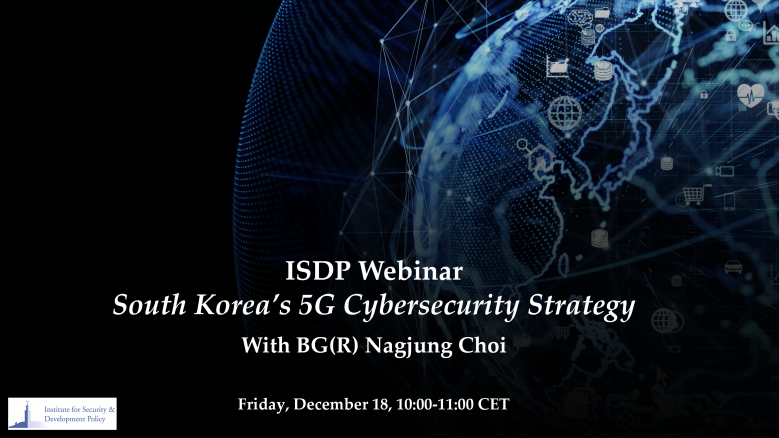South Korea’s 5G Cybersecurity Strategy

In recent years, the number of cyber threats and cyberattacks has risen dramatically across the globe. In response, investing in more advanced cybersecurity measures has become a crucial component of the national security strategies of many countries. New advances in technology carry many opportunities but also have the potential to bring instability to current international security dynamics, highlighted most clearly by the ongoing debate around the rollout of 5G.
5G network architecture uses a high-frequency spectrum to accelerate the transmission of data over shorter distances compared to 4G LTE technology. Even though it will bring many benefits, this new infrastructure is also more liable to cyberattacks. The network’s higher volume and speed will strain real-time security monitoring aimed at stopping threats.
Cybersecurity has been increasingly prioritized in South Korea’s security calculus. The country’s cyberspace is particularly at risk because the country does not possess a well-developed defense-offense cyber capability which has been proven over the last few years through it being subjected to a plethora of cyber-attacks aimed at critical infrastructure.
Over the years, South Korea has attempted to adapt to the changing arena of cybersecurity with an increase in its investments in this field, as well as upgrading the complicacy of measures and response capabilities to confront various sources, types, and intensities of cyberattacks.
ISDP is honored to welcome BG(R) Nagjung Choi for a discussion on South Korea’s 5G cybersecurity strategy. BG(R) Choi is a retired Republic of Korea Army general. His current interest is in cybersecurity, and as a Cyberwarfare Professor and student of a Doctoral degree program, his research is focused on combining cyberspace technologies with military operations.
The webinar will be moderated by ISDP’s Executive Director, Dr. Niklas Swanström.
The Center would like to acknowledge that this event was generously supported by the Korea Foundation.